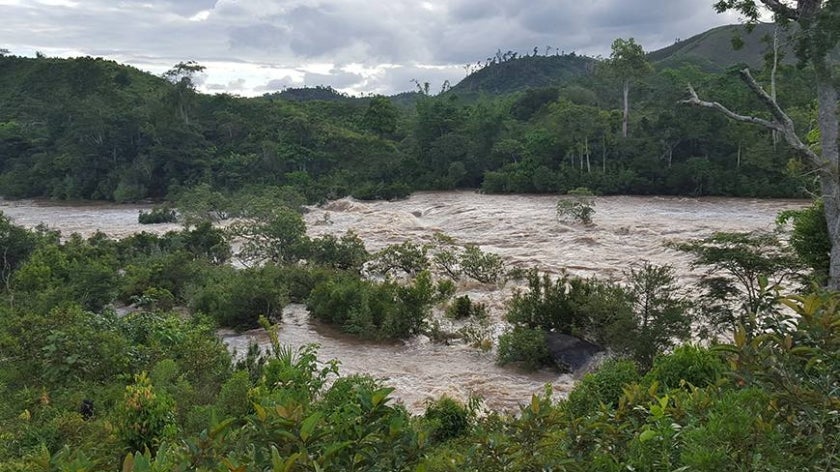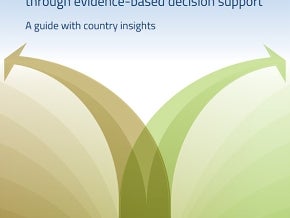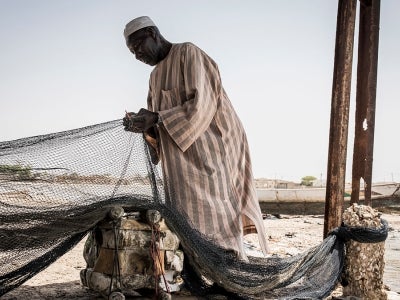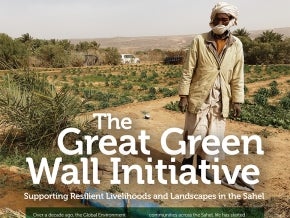
The Sustainable Landscape Management project will take care of reducing the degradation of soils and forests, managing water resources and increasing agriculture productivity and people’s livelihoods in an integrated manner.
Madagascar is endowed with large amounts of arable lands, vast deposits of mineral resources, abundant labor, and unparalleled biodiversity. However, Madagascar remains among the poorest countries in the world, facing political instability, agricultural productivity deficits, and severe climate impacts.
Two Global Environment Facility (GEF) projects, in collaboration with the World Bank, will help Madagascar manage natural resources more sustainably for increased access to irrigation services, agricultural inputs, and forestry services, as well as improve management of fisheries and provide alternative livelihoods to targeted fishermen.
Agriculture project proposes integrated management of land, water and forests
Four out of five Malagasy depend directly on land, water and forests for their livelihoods. Agriculture is either a principal or secondary economic activity for 81 percent of all households. The Sustainable Landscape Management project, a close collaboration between the GEF, the World Bank, and the French Agency for Development (AFD), will help the rural population of Madagascar to better manage the natural capital provided by agricultural lands, forests, and protected areas.
As environmental challenges become increasingly complex and urgent, the GEF has adopted a more integrated, multi-stakeholder approach to address the drivers of environmental degradation. In line with this need to have more impactful, scalable approaches, the project proposes a landscape approach to promote better coordination and integration between key sectors influencing land management, notably agriculture, water, and environment. The total project funding is $78.7 million, with a $65 million IDA credit, and a $13.7 million GEF grant.
“This new project for Madagascar seeks to tackle complex environmental challenges through a more integrated, multi-stakeholder approach. By restoring and sustainably managing the natural capital provided by agricultural lands, forests and protected areas, it will benefit more than 38,000 rural people,” said Jean-Marc Sinnassamy, program manager at the GEF. “The project integrates the agriculture, water, and environment sectors in an innovative landscape approach, and will make a major contribution to Madagascar’s engagement with the Bonn Challenge, through which they aim to restore 4 million ha of forest landscapes by 2030.”
The project will target five selected landscapes: Andapa, Soanierana Ivongo, Iazafo, Bealanana, and Marovoay. Through the project, local rice producers, upland farmers, and forest users from four different regions in the country will have access to improved irrigation services, agricultural inputs, and service delivery. It will help to improve management effectiveness of ten protected areas, sustainably manage productive landscapes and forests, and protect forests, covering a total area of more than 1.13 million ha, and benefitting 38,000 rural people. The project will also reinforce the capacities of national, regional and local level administrations, decentralized entities and CSOs. Innovative financing mechanisms such as payments for ecosystem services, REDD+ and carbon financing will be tested and deployed to make the approach sustainable.
The Sustainable Landscape Management project will also contribute to climate change mitigation, since it covers an area that constitutes a sizable carbon sink. It aims to reduce emissions by more than 3 million tons CO2e over twenty years thanks to agroforestry practices, sustainable forest management, reforestation, and improved crop management. It will also make a significant contribution to Madagascar’s engagement with the Bonn Challenge, which aims to restore 4 million ha of forest landscapes by 2030.

Through the project, local rice producers, upland farmers, and forest users from four different regions in the country will have access to improved irrigation services, agricultural inputs, and service delivery.
Fisheries project will target core governance and productivity challenges
An additional GEF/World Bank project in Madagascar will provide the country and the Indian Ocean Commission with $83.15 million to improve the management of selected fisheries at the regional, national and community levels through the Second South West Indian Ocean Fisheries Governance and Shared Growth Project (SWIOFish2).
Marine fisheries and aquaculture production are worth $213 million per year for Madagascar alone, where fisheries can contribute up to 7 percent of GDP annually. In Madagascar, the sector employs 300,000 people directly, and an estimated 500,000 indirectly or part time, including a high proportion of the coastal population which includes some of the most vulnerable, marginalized, and landless communities.
“The support of the SWIOFish series of projects is unique in combining support for regional cooperation on fisheries with local and national priorities for fisheries management,” said Astrid Hillers and Christian Severin, GEF leads on International Waters at the global level and in Africa. “The project will substantially improve Madagascar’s ability to reverse the decline of marine fisheries, improve local livelihoods of fishing communities, and enhance fisheries management along the supply chain in cooperation with the private sector.”
Funding includes a $65 million credit by the World Bank, a $6.42 million grant by the GEF, $2.73 million by Japan’s Policy and Human Resources Development Trust Fund to Madagascar, and a $9 million grant by the World Bank to the Indian Ocean Commission.
Read the World Bank press releases for the Sustainable Landscape Management project and SWIOFish2.


